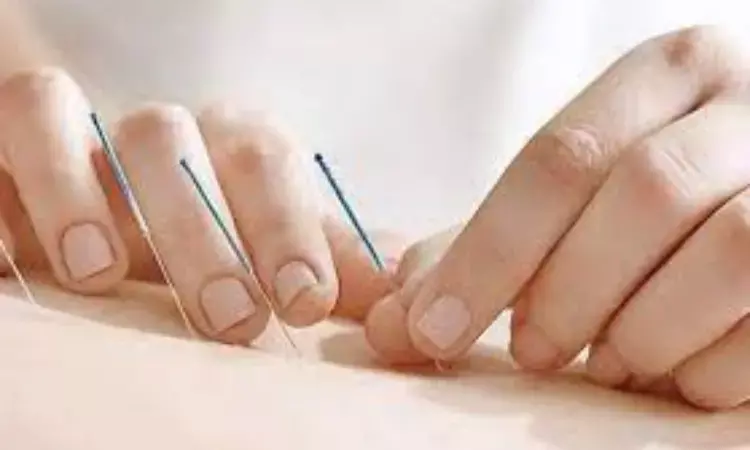- Home
- Medical news & Guidelines
- Anesthesiology
- Cardiology and CTVS
- Critical Care
- Dentistry
- Dermatology
- Diabetes and Endocrinology
- ENT
- Gastroenterology
- Medicine
- Nephrology
- Neurology
- Obstretics-Gynaecology
- Oncology
- Ophthalmology
- Orthopaedics
- Pediatrics-Neonatology
- Psychiatry
- Pulmonology
- Radiology
- Surgery
- Urology
- Laboratory Medicine
- Diet
- Nursing
- Paramedical
- Physiotherapy
- Health news
- Fact Check
- Bone Health Fact Check
- Brain Health Fact Check
- Cancer Related Fact Check
- Child Care Fact Check
- Dental and oral health fact check
- Diabetes and metabolic health fact check
- Diet and Nutrition Fact Check
- Eye and ENT Care Fact Check
- Fitness fact check
- Gut health fact check
- Heart health fact check
- Kidney health fact check
- Medical education fact check
- Men's health fact check
- Respiratory fact check
- Skin and hair care fact check
- Vaccine and Immunization fact check
- Women's health fact check
- AYUSH
- State News
- Andaman and Nicobar Islands
- Andhra Pradesh
- Arunachal Pradesh
- Assam
- Bihar
- Chandigarh
- Chattisgarh
- Dadra and Nagar Haveli
- Daman and Diu
- Delhi
- Goa
- Gujarat
- Haryana
- Himachal Pradesh
- Jammu & Kashmir
- Jharkhand
- Karnataka
- Kerala
- Ladakh
- Lakshadweep
- Madhya Pradesh
- Maharashtra
- Manipur
- Meghalaya
- Mizoram
- Nagaland
- Odisha
- Puducherry
- Punjab
- Rajasthan
- Sikkim
- Tamil Nadu
- Telangana
- Tripura
- Uttar Pradesh
- Uttrakhand
- West Bengal
- Medical Education
- Industry
Acupuncture reduces pain and opioid use for total knee replacement surgery patients

SAN DIEGO - Patients who have acupuncture during total knee replacement surgery report less pain and need far fewer opioids to manage their discomfort, according to a study being presented at the ANESTHESIOLOGY® 2021 annual meeting. Results of the study showed that 65% of patients who received acupuncture during surgery achieved a low-dose or opioid-free postoperative experience, compared to 9% of patients outside of the study.
"Total knee replacements are one of the most common operative procedures in the United States and often very painful, so there's a great need to explore non-opioid pain relief techniques for this type of surgery," said Stephanie Cheng, M.D., DABMA, lead author of the study and assistant attending anesthesiologist at the Hospital for Special Surgery and assistant professor of clinical anesthesiology at Weill Cornell Medicine, both located in New York City. "Acupuncture is extremely safe and can help reduce pain with few unwanted side effects, but it has not been well researched as part of surgical anesthesia."
With the addition of acupuncture, the majority of patients had a significant reduction in postoperative opioid use, compared to historical controls. Sixty-five percent of patients maintained a low-dose opioid regimen of 15 oxycodone pills or less (57.5%) or remained completely opioid-free (7.5%) from induction of anesthesia to 30 days after surgery. Historically, only 9% of patients outside of the study maintained a low-dose or opioid-free regimen post-surgery. All patients studied discontinued opioid use after 30 days following surgery.
"Our study shows that if a trained medical acupuncturist is available to perform acupuncture in the operating room, it can help patients with postoperative pain recovery," said Dr. Cheng. "Most studies fail to incorporate nontraditional techniques, such as acupuncture, to help decrease the dependance on opioid medications for postoperative pain control."
In the context of the opioid epidemic, achieving low-dose perioperative opioid consumption is critical to reducing the risk of long-term opioid use in patients. With acupuncture being commonly used outside of the hospital as an effective therapy for pain management and treatment for a range of health issues and symptoms, it's time to consider its benefits inside the hospital as well, Dr. Cheng said. "Additional research is needed to further define acupuncture's effects and encourage its use in all aspects of disease treatment."
Hina Zahid Joined Medical Dialogue in 2017 with a passion to work as a Reporter. She coordinates with various national and international journals and association and covers all the stories related to Medical guidelines, Medical Journals, rare medical surgeries as well as all the updates in the medical field. Email: editorial@medicaldialogues.in. Contact no. 011-43720751
Dr Kamal Kant Kohli-MBBS, DTCD- a chest specialist with more than 30 years of practice and a flair for writing clinical articles, Dr Kamal Kant Kohli joined Medical Dialogues as a Chief Editor of Medical News. Besides writing articles, as an editor, he proofreads and verifies all the medical content published on Medical Dialogues including those coming from journals, studies,medical conferences,guidelines etc. Email: drkohli@medicaldialogues.in. Contact no. 011-43720751


